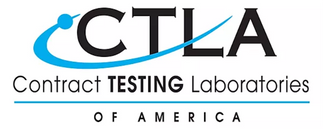As part of current good manufacturing practices (GMP), the U.S. Food and Drug Administration (FDA) requires a dietary supplement to consistently meet established specifications for identity, purity, strength, and composition.
A botanical represents a highly complex mixture of natural compounds. Botanicals used in dietary supplements contain any part of a plant or a preparation of a plant, including extracts.

The chemical composition of botanicals varies based on numerous factors, including where a plant is grown, its developmental stage, and harvesting methods. It may appear that GMP testing for botanicals is more complex than for synthetic pharmaceuticals. High-performance thin-layer chromatography (HPTLC) offers an efficient, accurate and economical method for fulfilling quality testing requirements on complex botanical ingredients.
HPTLC Testing
As a chromatographic technique, HPTLC utilizes a thin layer of stationary phase, usually silica, on a plate to achieve separation of the various compounds found in botanical samples. This plate is then imaged under various wavelengths of light and compared to a fingerprint generated from certified reference standards.
HPTLC testing separates the various compounds found in botanicals by exploiting differences in polarity and size to create bands on the TLC plate. Comparing the sample compound separation bands to the analytic fingerprint bands of the standard identifies the botanical, with detection down to 5‒10pg. Identification of botanical compounds takes 3‒20 minutes.
Abnormalities observed in the sample that are not observed in the fingerprint of the standard indicate sample contamination or adulteration.
"HPTLC testing ensures the quality and purity of ingredients, allowing dietary supplement manufacturers to give clients the best possible products,” said Jake Hart, Head Chemist at CTLA.
Testing at CTLA
CTLA operates with ISO/IEC 17025:2017 certification.

CTLA regularly provides identity and purity testing for the following botanicals:
- Ashwagandha
- Curcuma Longa
- Fenugreek Extract
- French Maritime Pine bark
- Garlic extract
- Gotu Kola
- Silibum Marianum
- Vaccinium Schisardra
If you need additional botanical testing, contact CTLA. With more than 800 botanical reference materials available, CTLA can and will meet your HPTLC testing needs.
The typical cost for CTLA HPTLC testing runs between $200 and $300 based on the associated botanical standard.
Contact CTLA today for all your food, dietary supplement, and personal product testing needs. Our quality management system provides secure, transparent, and traceable results.

Sources:
“Small Entity Compliance Guide: Current Good Manufacturing Practice in Manufacturing, Packaging, Labeling, or Holding Operations for Dietary Supplements.” FDA. December 2010. https://www.fda.gov/regulatory-information/search-fda-guidance-documents/small-entity-compliance-guide-current-good-manufacturing-practice-manufacturing-packaging-labeling
Reich E, Schibli A, DeBatt A. Validation of high-performance thin-layer chromatographic methods for the identification of botanicals in a cGMP environment. J AOAC Int. 2008 Jan-Feb;91(1):13-20. PMID: 18376581; PMCID: PMC2662610.
